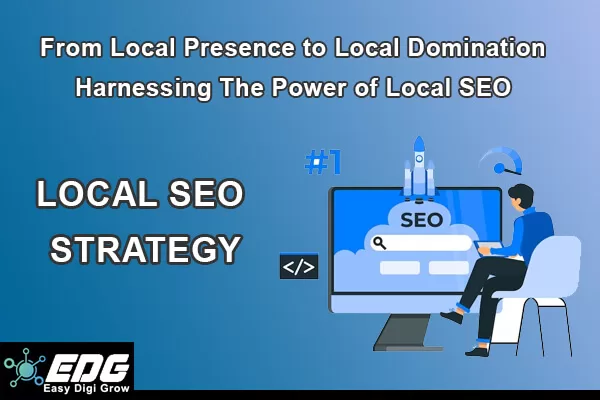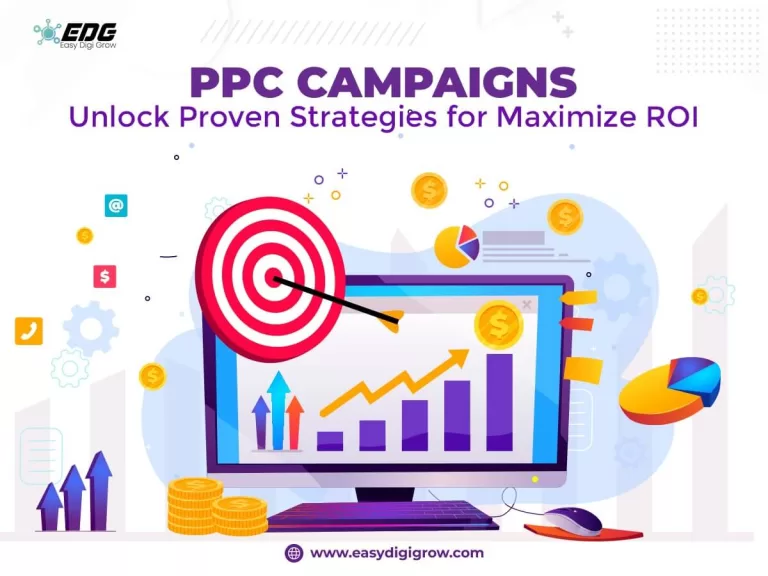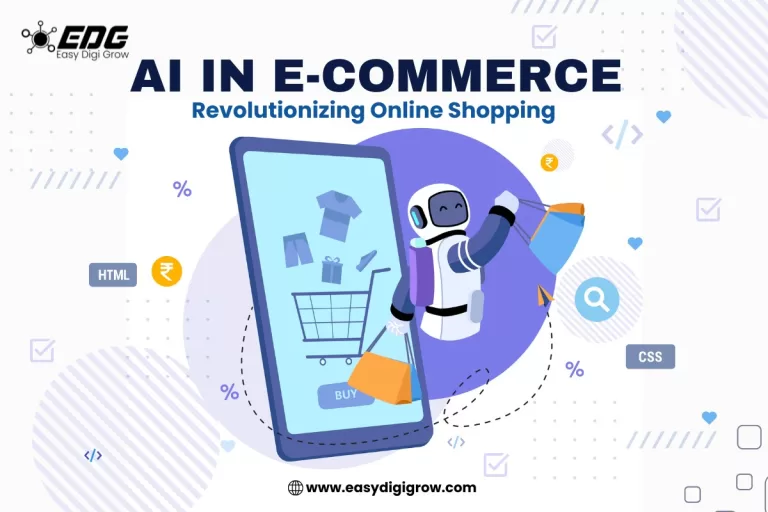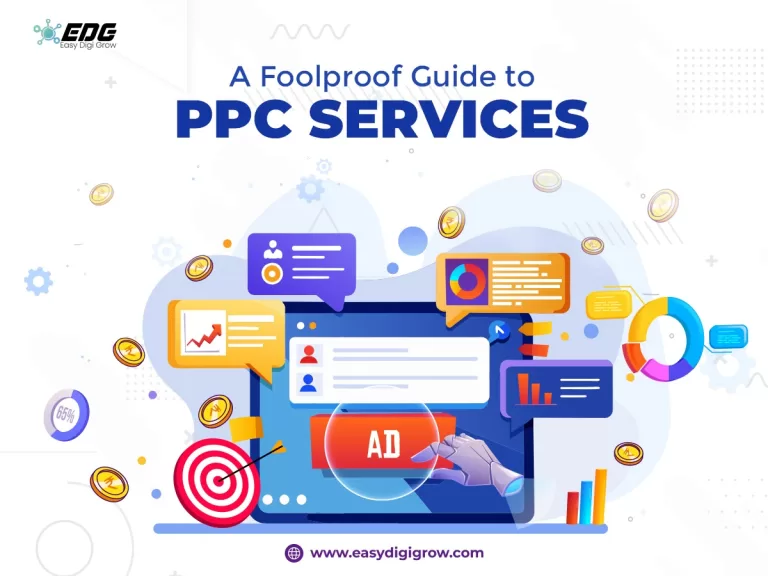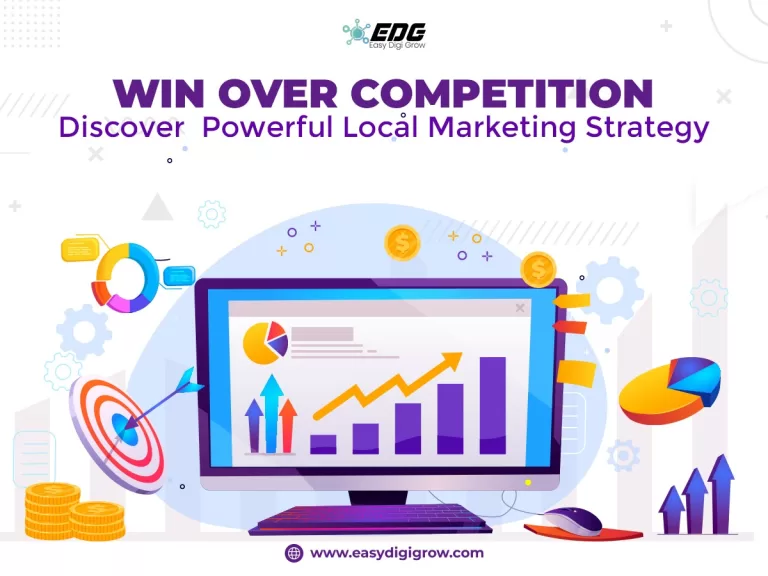Calling all local business owners! Want to unlock the secret to conquering your local market and leaving your competitors in the dust? Look no further because we have the ultimate guide to dominating your area with the power of local SEO!
Picture this: customers eagerly searching for your products or services in their area and finding YOU at the top of the search results.
Imagine the flood of eager customers knocking on your door, ready to do business with you. In today’s digital age, where “near me” searches and local intent are all the rage, it’s time to supercharge your online presence and harness the untapped potential of local SEO.
Are you ready to become the local hero your customers can’t resist? Buckle up, because we’re about to take your business on an adrenaline-fueled ride toward local domination!
Introduction to Local Search Engine Optimization
In this fast-paced world, where the majority of consumers turn to search engines for their needs, local SEO plays a crucial role in connecting businesses with their target audience. By tailoring your online presence to match local search intent, you can gain a competitive edge and drive more foot traffic to your physical store or website.
Understanding Local SEO
What is Local SEO?
Local SEO refers to the process of optimizing your online presence to attract more customers from a specific geographical location. It involves implementing strategies that help search engines understand the relevance and location of your business, increasing its visibility for location-based queries.
Importance of Local SEO for Businesses
Local SEO holds immense importance for businesses, especially those operating in specific regions or targeting local customers. By appearing prominently in local search results, you can drive highly targeted traffic to your business, resulting in increased brand visibility, foot traffic, and ultimately, more revenue.
The Art of Optimizing GMB Listings for Enhanced Local SEO Performance
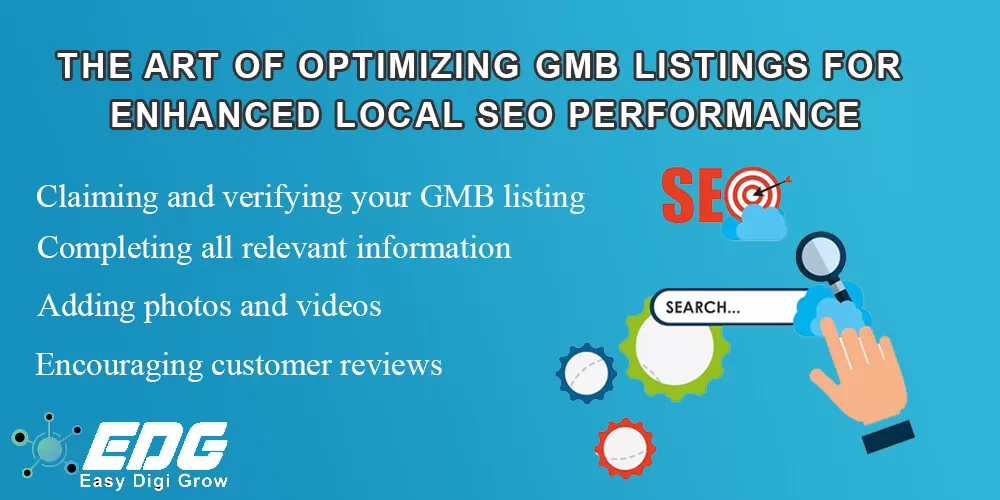
A critical component of local SEO is optimizing your Google My Business (GMB) listing. GMB is a free tool provided by Google, allowing businesses to manage their online presence across Google’s search engine and maps.
Here are some key steps to optimize your GMB listing:
Claiming and verifying your GMB listing: To get started, claim your GMB listing if you haven’t already. Verification is crucial as it establishes the authenticity of your business and enhances trust with potential customers.
Completing all relevant information: Ensure that you fill out all the required information, including your business name, address, phone number, website, and operating hours. Providing accurate and up-to-date details helps customers find and contact your business easily.
Adding photos and videos: Visual content has a significant impact on customers’ decision-making process. Include high-quality photos and videos of your business, products, and services to showcase what sets you apart from the competition.
Encouraging customer reviews: Customer reviews play a pivotal role in local SEO rankings. Encourage your satisfied customers to leave positive reviews on your GMB listing, as they act as social proof and can influence potential customers.
Unveiling the Art of Local Keyword Targeting for Business Growth
To effectively dominate your local market, you need to target the right keywords. Here’s how you can optimize your website for local keywords:
Researching local keywords: Conduct thorough keyword research to identify the search terms that potential customers are using to find businesses like yours in your target area. Tools like Google Keyword Planner and SEMrush can help you discover relevant local keywords.
Incorporating keywords into website content: Once you have a list of local keywords, incorporate them naturally into your website’s content. Write informative and engaging articles, blog posts, and product descriptions that address the needs and concerns of your local audience.
Optimizing meta tags and headers: Include your target local keywords in the meta tags, such as the title tag and meta description. Additionally, optimize the headers (H1, H2, H3, etc.) throughout your web pages to provide a clear structure and further signal relevance to search engines.
Creating location-specific landing pages: If you serve multiple locations, consider creating location-specific landing pages. These pages can help you target specific areas and provide tailored information to visitors from each location, enhancing their user experience.
Mastering Online Reputation Management and Customer Reviews
Local search rankings and consumer trust are heavily influenced by online reviews. To leverage the power of online reviews, consider the following:
The Influence of Online Reviews on Local Search Rankings: Search engines, especially Google, take online reviews into account when determining local search rankings. Positive reviews can boost your visibility, while negative reviews can negatively affect your rankings and reputation.
Encouraging customers to leave reviews: Make it easy for your customers to leave reviews by providing clear instructions on your website, social media profiles, and in-store. Thus, you can also send follow-up emails requesting feedback and reviews after purchase or interaction with your business.
Responding to reviews, both positive and negative: Engage with your customers by responding to their reviews promptly. Express gratitude for positive reviews and address any concerns or issues raised in negative reviews. Show potential customers that you value feedback and are committed to providing excellent customer service.
Monitoring and managing online reputation: Regularly monitor online review platforms and social media channels to stay informed about what customers are saying about your business. Address any negative feedback proactively and take steps to resolve customer complaints or issues promptly.
Unleashing the Power of Building Local Citations for Local SEO Success
Local citations refer to online mentions of your business’s NAP (Name, Address, Phone Number) information on various websites and directories. Here’s how you can build and manage local citations effectively:
What are local citations?
Local citations are references to your business’s contact information on external websites. These citations help search engines verify the accuracy and legitimacy of your business and play a crucial role in local search rankings.
Creating consistent NAP information: Ensure that your NAP information is consistent across all online platforms, including your website, social media profiles, online directories, and review platforms. Consistency fosters trust among both search engines and customers.
Submitting to online directories and local listings: Submit your business to relevant online directories and local listings, such as Yelp, Yellow Pages, and industry-specific directories. These platforms provide valuable backlinks and increase your online visibility.
Building citations through partnerships and sponsorships: Forge partnerships with local organizations, charities, and events to earn mentions and links back to your website. Sponsoring local events or supporting community initiatives not only builds goodwill but also helps you establish a strong local presence.
Building Bridges to Local Success: How Local Link Building Elevates Your SEO Strategy for Targeted Visibility
Link building is a crucial aspect of Search engine optimization, and it holds equal importance for local SEO. Here are some strategies to acquire local backlinks:
The importance of local links for SEO: Local links from reputable websites in your area can significantly boost your local search rankings. These links act as endorsements and indicate to search engines that your business is relevant within the local community.
Strategies for acquiring local backlinks: Reach out to local newspapers, blogs, and influencers in your industry to collaborate on content or request coverage of your business. Participate in local events, sponsor local organizations, and seek opportunities to earn backlinks from authoritative local sources.
Engaging with local organizations and businesses: Network with other local businesses and organizations in your area. Seek opportunities for cross-promotion, guest blogging, or co-marketing initiatives. By collaborating, you can both benefit from shared audiences and increase your local visibility.
Guest blogging and content collaboration: Identify local websites or blogs that accept guest posts or feature local businesses. Contribute high-quality content that provides value to their readership while including relevant links back to your website.
Optimizing for Success with Mobile Optimization and Enhanced Local Visibility
With the increasing prevalence of mobile devices, optimizing your website for mobile users is crucial for local SEO success. Consider the following aspects:
The rise of mobile searches and their impact on local SEO: The use of smartphones for local business searches is steadily increasing. Ensuring a seamless mobile experience is not only beneficial for user engagement but also positively impacts your local search rankings.
Ensuring mobile-friendly website design: Enhance your website for mobile devices through the implementation of responsive website design principles. However, this ensures that your website adapts to different screen sizes and provides a user-friendly experience.
Implementing responsive design and fast-loading speeds: A website that loads slowly can significantly harm user experience and search rankings. Boost your website’s loading speed by compressing images, utilizing caching techniques, and minimizing unnecessary code.
Optimizing for voice search: With the rise of virtual assistants like Siri, Alexa, and Google Assistant, optimizing for voice search is becoming increasingly important. Focus on conversational keywords and phrases that align with how people naturally speak when using voice-activated search.
Socialize Your Local SEO Strategy: Leveraging Social Media to Amplify Local Business Success
Social media platforms can be powerful tools for increasing your local visibility and connecting with your target audience. Consider the following strategies:
Leveraging social media platforms for Local Visibility: Establish a presence on popular social media platforms such as Facebook, Instagram, and Twitter. Enhance your profiles by optimizing them with precise business details, including your address, phone number, and website.
Creating local content and engaging with the community: Publish engaging content that resonates with your local audience. Highlight local events, share behind-the-scenes glimpses of your business, and feature customer success stories. Keep your followers engaged by promptly responding to comments and messages.
Promoting local events and offers: Use social media to promote any local events, sales, or special offers your business is running. Encourage followers to share the information with their networks, expanding your reach within the local community.
Leveraging social media for exceptional customer service and valuable feedback: Social media platforms provide an avenue for customers to reach out to your business with questions, concerns, or feedback. Respond promptly and professionally to customer inquiries, addressing any issues or complaints publicly to demonstrate your commitment to customer satisfaction.
Unlocking Local SEO Insights: Measure and Track Success with Effective Analytics and Reporting
To gauge the effectiveness of your local SEO efforts, it’s essential to track key metrics and analyze data. Consider the following:
Key metrics to monitor for local SEO: Track metrics such as organic search traffic, keyword rankings, website conversions, and online reviews. These metrics provide insights into the effectiveness of your local SEO strategies and help identify areas for improvement.
Utilizing Google Analytics and Google Search Console: Google Analytics and Google Search Console are powerful tools that provide valuable data about your website’s performance. Monitor these platforms to gain insights into your local search traffic, user behavior, and search queries.
Tracking local keyword rankings: Regularly monitor the rankings of your target local keywords to assess your visibility in local search results. Identify any fluctuations and make adjustments to your strategies accordingly.
Analyzing website traffic and conversion rates: Analyze your website traffic data to understand which channels are driving the most visits, how visitors interact with your site, and where they drop off in the conversion funnel. Use this information to optimize your website for better user experience and higher conversion rates.
Navigating the Evolving Local SEO Landscape: How to Stay Updated and Thrive in Local Search Results
Local SEO is a dynamic field, with search engine algorithms and best practices constantly evolving. Keep pace with the ever-evolving trends and adjust your strategies accordingly.
The ever-evolving nature of SEO algorithms: Search engine algorithms, including those used for local search, undergo regular updates. Stay informed about algorithm changes and adjust your strategies to ensure continued success.
Following industry blogs and publications: Read industry blogs, publications, and reputable SEO websites to stay abreast of the latest trends and developments in local SEO. This knowledge will help you stay competitive and make informed decisions for your business.
Attending SEO conferences and webinars: Participate in SEO conferences, webinars, and workshops to learn from industry experts and gain valuable insights. These events often provide opportunities to network with other professionals and stay connected with the local SEO community.
Experimenting and adapting to changes: Don’t be afraid to experiment with new strategies and techniques. Local SEO is not a one-size-fits-all approach, and what works for one business may not work for another. Continuously monitor your results, adapt to changes, and refine your strategies for optimal performance.
What are the common mistakes to avoid in local SEO for businesses in or around Delhi/NCR?
Inconsistent NAP Information: Ensure that your business Name, Address, and Phone Number (NAP) are consistent across all online platforms, including your website, Google My Business listing, and local directories. Conflicting NAP information can cause confusion for both search engines and potential customers.
Neglecting Google My Business: Ensure that you claim and verify your listing, provide accurate and complete information, add high-quality photos, and encourage customer reviews. Optimizing your listing improves your chances of appearing in local search results.
Ignoring Online Reviews: Neglecting to manage and respond to customer reviews, both positive and negative, can harm your online reputation and impact your local search rankings.
Lack of Local Keyword Optimization: Failing to include location-specific keywords can make it challenging for search engines to understand your business’s relevance to local searches.
Poor Website Optimization for Mobile Devices: With the increasing use of smartphones, having a mobile-friendly website is essential. Failure to optimize your website for mobile devices can lead to a subpar user experience and have adverse effects on your local search rankings.
Inadequate Tracking and Analytics: Make use of tools like Google Analytics and Google Search Console to monitor your website’s performance. Additionally, track keyword rankings, and gain insights into user behavior.
By avoiding these common mistakes and implementing effective local SEO strategies, businesses in Delhi/NCR can enhance their online visibility.
Conclusion
Local SEO is an incredibly powerful tool that businesses can leverage to establish their dominance in their local market. At EasyDigiGrow, we understand the importance of local SEO strategies and closely monitoring your progress.
By implementing these strategies, you can gain a significant advantage in local search results. Therefore, driving highly targeted traffic to your website, increasing brand visibility, and ultimately achieving substantial business growth. Also, check out our exclusive On-Page SEO services to drive more revenue from Google searches.
FREQUENTLY ASKED QUESTIONS
How do I target local keywords?
To target local keywords effectively, conduct keyword research to identify relevant search terms used by your local audience. So, incorporate these keywords naturally into your website’s content, and optimize meta tags and headers. Consider creating location-specific landing pages to cater to the different areas you serve.
How can I measure the success of my local SEO strategies?
To measure the success of your local SEO strategies, monitor key metrics. Like organic search traffic, keyword rankings, website conversions, and online reviews. Utilize tools like Google Analytics and Google Search Console to gather data and insights into the performance of your local SEO campaigns.
How can I find the right keywords and phrases for local SEO targeting Delhi/NCR?
To effectively target local SEO in Delhi/NCR, start by conducting comprehensive keyword research. Utilize tools like Google Keyword Planner, SEMrush, or Ahrefs. Identify industry-specific keywords, and incorporate location modifiers such as “Delhi” or “NCR.” Furthermore, analyze competitor keywords and gather insights from local customers. By doing so, you can enhance your visibility in local search results and attract targeted traffic.
Is there a difference between local SEO and organic SEO, and how do they complement each other?
Local SEO and organic SEO complement each other. Local SEO targets specific locations, attracting local customers, while organic SEO aims for broader visibility. Together, they maximize online presence, attract diverse audiences, and boost search rankings.
Are there any legal considerations or guidelines to follow for local SEO in India?
Ensure compliance with local laws, provide accurate information, and respect copyright and intellectual property. Also, avoid spam, and unethical practices, and respect trademark rights.
By following these guidelines, you can maintain legal integrity in your local SEO efforts.
What are the best tools and resources for conducting local keyword research?
Google Keyword Planner, Google Trends, Local business directories, Social media platforms, Customer surveys, feedback, etc.



